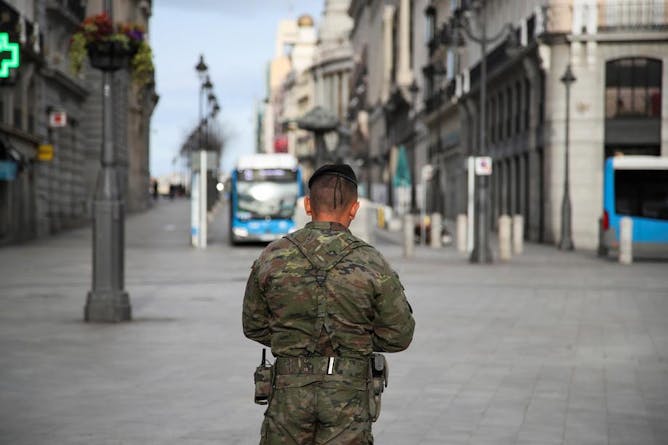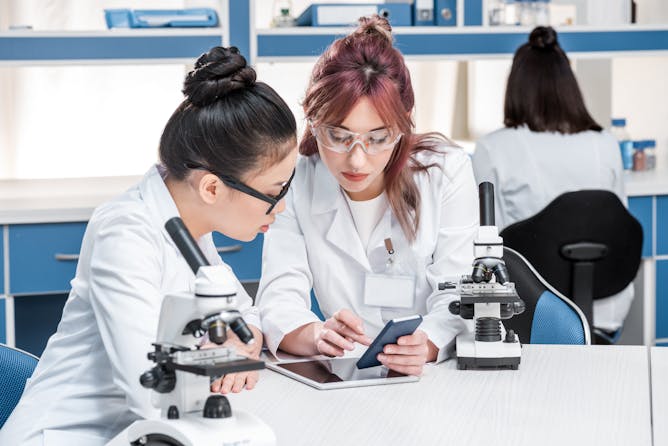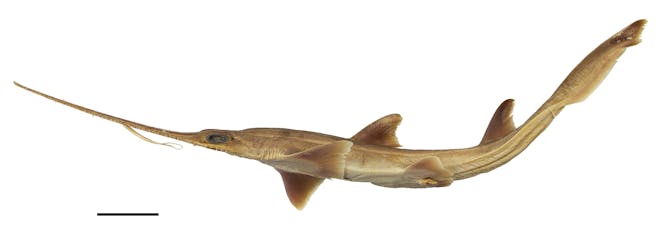|
|
|
Editor's note
|
|
Now schools are being closed across the UK in response to the escalating coronavirus crisis. With many of us already facing self-isolation, it seems like more extreme measures, such as the lockdowns we’ve seen in other European countries, are just around the corner.
But how can you think positively about months of isolation? Dan in Southampton wrote to Life’s Big Questions, a series co-published with BBC Future, to ask exactly that. And a philosopher in lockdown in Piedmont, Italy, has answers. Having spent a lot of time thinking about what we can learn from the coronavirus pandemic, Silvia Panizza argues that isolation offers an opportunity for reflection and change. Her own view is that we need to start
seeing ourselves as part of a larger system: planet Earth. This will ultimately allow us to think differently about what it means to be free and change our lives for the better.
Meanwhile, what of the origins of this coronavirus? A new genomic analysis, currently under review, suggests that SARS-CoV-2 could be the result of two separate viruses combining. The Conversation brings you research news and analysis by the academics themselves. But some media can misrepresent scientific studies. Now, new research reveals how you can spot inaccurate coverage.
And don’t forget there’s still awe and wonder in the world. Two entirely new shark species have just been discovered off the coast of East Africa.
|
Miriam Frankel
Science Editor
|

|
|
Top story
|

A member of the Spanish Army’s Paratrooper Brigade (BRIPAC) patrols the iconic Puerta del Sol square in the center of Madrid, Spain, 17 March 2020.
Credit: EPA Images/David Fernandez
Silvia Panizza, University College Dublin
The coronavirus outbreak shows it is time to start thinking of ourselves as part of something bigger - while also respecting the individual.
|

The origin of the Covid-19 virus is still unclear: a cave, the forest…
Michal Ico/Unsplash
Alexandre Hassanin, Muséum national d’histoire naturelle (MNHN)
The SARS-CoV-2 virus responsible for the COVID-19 pandemic is undergoing extensive genetic analysis around the world to understand its origin and evolution.
|

LightField Studios/Shutterstock
Doug Specht, University of Westminster; Julio Gimenez, University of Westminster
From coronavirus to climate change, it's easy to be misled by some reporting.
|

One of the newly discovered sixgilled sawshark species (Pliotrema kajae).
Simon Weigmann
Per Berggren, Newcastle University; Andrew Temple, Newcastle University
Scientists thought there was only one sixgill sawshark species – until now.
|
Politics + Society
|
-
Sophie Harman, Queen Mary University of London
The UK is on the tipping point of a humanitarian emergency. To tackle this the government must now give more money to local authorities.
-
David Evans, Pardee RAND Graduate School; Mead Over, Georgetown University
The economic impact of the disease will have dramatic effects on the well-being of families and communities
-
Marianna Fotaki, Warwick Business School, University of Warwick
Five years ago, communities in Italy and Greece volunteered to help migrants and refugees. Now that solidarity has disappeared. Why?
-
Saffron Karlsen, University of Bristol; Christina Pantazis, University of Bristol; Magda Mogilnicka, University of Bristol; Natasha Carver, University of Bristol
Why 'stigmatising' and 'traumatising' approaches to FGM safeguarding are in urgent need of a review.
|
|
Health + Medicine
|
-
Jimmy Whitworth, London School of Hygiene & Tropical Medicine
From China and South Korea to Italy and the US, different countries are taking very different approaches to COVID-19 – with varying degrees of success.
-
Charles Foster, University of Oxford
We might recover our sense of being part of society.
-
Yanqiu Rachel Zhou, McMaster University
The face mask shortage shows how governments can either work together with global supply chains in positive ways or revert to state-centric policies that prevent us from dealing with COVID-19.
|
|
Business + Economy
|
-
Dave Cook, UCL
COVID-19 has forced many of us to do the daily shift from home. An anthropologist who observed a group of remote workers raises some concerns and shares some tips.
-
Ahmad Beltagui, Aston University; Oscar Rodriguez-Espindola, Aston University; Soumyadeb Chowdhury, Aston University
Artificial Intelligence, 3D printing and blockchain can make supply chains more resilient - but only if we (and they) collaborate.
-
Michael Heath, University of Strathclyde ; Robin Cook, University of Strathclyde
Fears are high that the two sides will unilaterally decide what quotas to follow without regard to scientific advice.
|
|
Arts + Culture
|
-
WIlliam Niven, Nottingham Trent University
Amazon’s new TV series series divided the critics, but almost everyone agrees that it takes problematic liberties in its representation of Auschwitz.
-
James Skinner, Loughborough University; Aaron CT Smith, Loughborough University
Cancelled games, moved tournaments and new rules
|
|
Environment + Energy
|
-
Lucy Woodall, University of Oxford
Unless we know what is in the ocean, we can’t protect the biggest part of the planet.
-
Darren Evans, Newcastle University
The game is a fantastic metaphor for understanding how extinctions cause ecosystems to become more fragile.
|
|
| |
Featured events
|

|
University of Huddersfield, Queensgate, Schwann Building Level 1,, Huddersfield, Kirklees, HD1 3DH, United Kingdom of Great Britain and Northern Ireland — University of Huddersfield
|

|
East Road, Cambridge, Cambridgeshire, CB11PT, United Kingdom of Great Britain and Northern Ireland — Anglia Ruskin University
|

|
Ditchburn Lecture Theatre, JJ Thompson Building, Whiteknights campus, Reading, West Berkshire, RG6 6UR, United Kingdom of Great Britain and Northern Ireland — University of Reading
|

|
East Midlands Conference Centre, University of Nottingham Park, , Nottingham, Aberdeenshire, NG7 2RJ, United Kingdom of Great Britain and Northern Ireland — University of Nottingham
|
|
|
|
| |
| |
| |
| |
| |
|
|
|
|
|
|
|